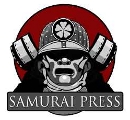Batman: Dead White
 I’m a big fan of John Shirley’s other work, especially Crawlers and Demons — though rarely have I been struck, in reading a writer’s efforts, with quite so palpable a feeling that I am being informed of that writer’s personal details. In Shirley’s case, though I know nothing about him except what I have read in the aforementioned novels and his collection, Black Butterflies, I am quite positive that Shirley is painfully politically liberal and almost certainly gay. Neither of these facts of his personal life make any difference to me when reading his books, except insofar as they break the illusion created by the story. I should not, in reading a novel, be forced to leave the narrative in order to ponder the narrator.
I’m a big fan of John Shirley’s other work, especially Crawlers and Demons — though rarely have I been struck, in reading a writer’s efforts, with quite so palpable a feeling that I am being informed of that writer’s personal details. In Shirley’s case, though I know nothing about him except what I have read in the aforementioned novels and his collection, Black Butterflies, I am quite positive that Shirley is painfully politically liberal and almost certainly gay. Neither of these facts of his personal life make any difference to me when reading his books, except insofar as they break the illusion created by the story. I should not, in reading a novel, be forced to leave the narrative in order to ponder the narrator.
Batman: Dead White is a competent and compelling story, with some interesting takes on a young and still less-than-completely-confident Batman learning to put himself mentally “in the pocket,” achieving a sort of bat-mind-of-no-mind in order to defeat his foes. Batman is, after all, simply a man, whose only advantages are his training, his equipment, and his will. The shades of obsession Shirley weaves into Batman’s inner dialogue are perfectly in keeping with the character as most readers will see him. The action is well-paced, the stakes high enough to give Batman a challenge, and the running struggle between the personae of Bruce Wayne and the Dark Knight worthy of the character’s legacy.
That said, the novel suffers greatly from Shirley’s left-wing hand-wringing. The man cannot resist editorializing as the story progresses. The result is a host of two-dimensional, unrealistic villains — from the quintessential redneck, racist Sheriff, to the “militia nuts” who form the key villain’s white supremacist followers, to the villain White Eyes (aka “Big White”) himself. The steroid-abusing “tan-challenged” leader of the Great Big Evil White Supremacist group (against whom Batman is pitted) is more caricature than character.
When Shirley isn’t treating us to trigger-happy senior citizens with Rush Limbaugh and NRA bumper-stickers on their RVs, he’s preaching to us that there is no difference between fascists and “neoconservatives.” Shirley’s political and emotional perspectives also hinder him in his attempts to get into the mind of the Batman, for Bob Kane’s detective — for all his hatred of firearms — is by no means a liberal.
Batman is a vigilante. The vigilante mindset is one to which most liberals cannot relate. Thus when Shirley writes sentences like, “Batman was ready to rock,” the reader cringes.
Fans of the Batman genre will enjoy this book. Despite its flaws, I did. It’s worth a read, though I’m a little disappointed in John Shirley, who is capable of so much better. A writer, any writer, has an omnipresent enemy in his ego. The only check on a writer’s self-indulgence is a good editor. Never was a more thorough editing required than in Batman: Dead White, which fails to achieve its potential thanks entirely to its author’s political prejudices.

